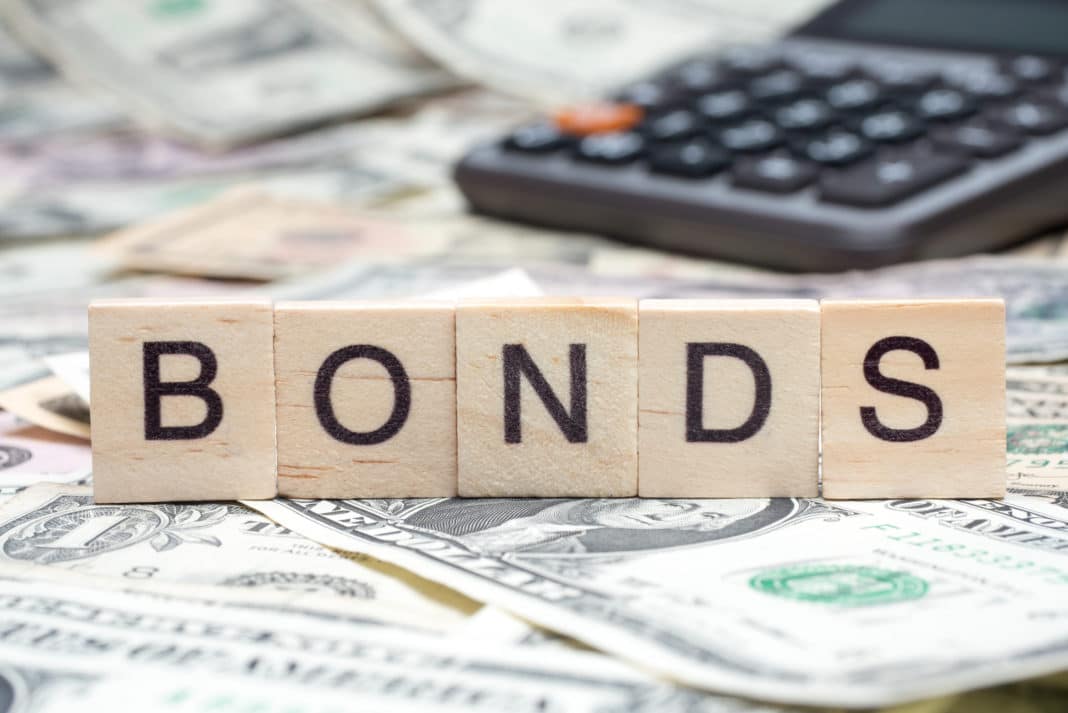MOST BOND MARKET UPTREND INTACT EXCEPT CHINA

The yield on the benchmark 10-year Treasury note above 1.6% in the last week of October, remaining close to 5-month highs, as investors continue to bet on the American economic recovery amid strong corporate results and as traders get increasingly more confident the Fed will start reducing stimulus next month, despite persistent inflationary pressure. On Friday, Fed Chair Powell reiterated the central bank would soon begin tapering although high inflation and pressure on wages will likely last into next year but will abate. Fresh GDP growth figures for Q3 due this week will be keenly watched for an update on the US economy.
The yield on UK 10-year government bond hovered around 1.15% in late October, remaining close to a recent two-year peak of 1.22% hit on October 21st, as investors accelerated their bets on Bank of England rate hikes this year. Latest economic data showed Britain's consumer price inflation in September remained close to August's nine-year high and well above the central bank's 2% target. On the other hand, the country's consumer morale and retail sales came in weaker-than-expected. Governor Andrew Bailey reiterated action would be needed by policymakers, as a surge in energy prices would push inflation higher and make its climb last longer, raising the risk of higher inflation expectations.
The yield on the benchmark Japan 10-year JGB rose to 0.1%, the highest in nearly seven months, amid a global rout in the bond market due to mounting concerns about supply disruptions and the timeline for the beginning of monetary policy tightening by major central banks. Meanwhile, market participants await the Bank of Japan monetary policy decision, where the bank is expected to keep rates unchanged and the target for the 10-year government bond yield at 0%. Moreover, the ruling coalition lost one of the two Upper House elections over the weekend ahead of a national general election due in the last day of the month.
The yield on Australian 10-year government bonds were close to 1.8% in the second half of October, a level not seen in almost seven months, as the case for tighter monetary policies strengthens globally. Traders monitored neighboring New Zealand’s decade high inflation rate to draw expectations to what might happen in Australia, raising prospects for interest rate hikes as soon as mid-2022, despite the Reserve Bank of Australia pledging hikes only before 2024. Additionally, minutes from the RBA’s October meeting revealed policymakers expect the economy to return to the recovery path in the current quarter, and reach pre-Delta wave growth levels in mid-2022. Meanwhile, Victoria and New South Wales eased travel restrictions for fully-vaccinated residents, allowing more mobility between Australia’s largest cities, Sydney and Melbourne.
Germany's benchmark Bund yield hovered around -0.1% in late October, remaining close to its highest level since May 2019, amid growing inflationary pressure and increased expectations of potential monetary policy tightening. Money markets have priced in a full 10 basis point rate hike by the European Central Bank by September 2022, even as President Lagarde reiterated the spike in inflation is likely to be transitory and policymaker Villeroy de Galhau said there is no reason that the bank should increase rates between now and the end of next year.
The yield on the 10- year government bonds in India was around 6.35% in late October, remaining close to levels not seen since April 2020. The key Indian bond yield is tracking a general rise in borrowing costs, amid persistent fears over rising global inflationary pressure as crude oil prices reach multi-year highs. Earlier in the month, the Reserve Bank of India during its monetary policy meeting suspended bond buying under its government securities acquisition programme.
China's benchmark 10-year bond yield dropped back below 3% in late October, down from a three-month high of 3.06% touched earlier in the month, after the FX regulator signaled willingness to act if the currency market is hit by greater fluctuations, suggesting the pace of the yuan appreciation remains a concern for the Chinese authorities. Meanwhile, a surprise interest payment by highly-indebted China Evergrande Group supported overall sentiment. Looking ahead, the yield is seen falling to 2.5% by the end of next year, due to slowing growth and anticipated easing from the central bank.


